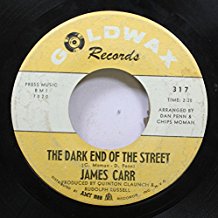
Joe South was an American singer-songwriter, guitarist, and record producer. Best known for his songwriting, South won the Grammy Award for Song of the Year in 1970 for "Games People Play" and was again nominated for the award in 1972 for "Rose Garden".
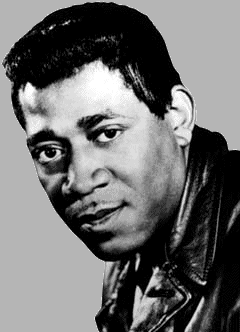
James Edward Carr was an American R&B and soul singer, described as "one of the greatest pure vocalists that deep Southern soul ever produced".
Lincoln Wayne "Chips" Moman was an American record producer, guitarist, and songwriter. He is known for working in R&B, pop music and country music, operating American Sound Studios and producing hit albums like Elvis Presley's 1969 From Elvis in Memphis and the 1985 debut album for The Highwaymen. Moman won a Grammy Award for co-writing "(Hey Won't You Play) Another Somebody Done Somebody Wrong Song", a 1975 hit for B.J. Thomas.
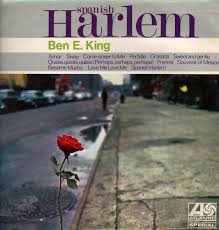
"Spanish Harlem" is a song recorded by Ben E. King in 1960 for Atco Records. It was written by Jerry Leiber and Phil Spector and produced by Jerry Leiber and Mike Stoller. "Spanish Harlem" was King's first hit away from The Drifters, peaking at number 15 on Billboard's rhythm and blues and number 10 in pop music chart.
"I Don't Care If the Sun Don't Shine" is a popular song written by Mack David. It was originally written for the Disney animated feature Cinderella, but was not used in the final print. The most popular version was recorded by Patti Page in 1950. The Page recording was issued by Mercury Records as catalog number 5396, and first reached the Billboard chart on May 20, 1950, lasting nine weeks and peaking at number 8. It was her first Top 10 hit. She recorded the song again in 1959 for her album I'll Remember April.
Dan Penn is an American songwriter, singer, musician, and record producer, who co-wrote many soul hits of the 1960s, including "The Dark End of the Street" and "Do Right Woman, Do Right Man" with Chips Moman and "Cry Like a Baby" with Spooner Oldham. Penn also produced many hits, including "The Letter", by The Box Tops. He has been described as a white soul and blue-eyed soul singer. Penn has released relatively few records featuring his own vocals and musicianship, preferring the relative anonymity of songwriting and producing. Dan Penn produced an album on Ronnie Milsap in 1970 on Warner Bros.

"Devoted to You" is a song written by Felice and Boudleaux Bryant.
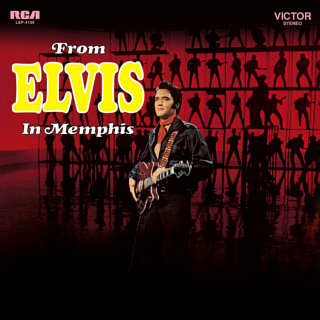
From Elvis in Memphis is the ninth studio album by American rock and roll singer Elvis Presley. It was released by RCA Records on June 2, 1969. It was recorded at American Sound Studio in Memphis in January and February 1969 under the direction of producer Chips Moman and backed by its house band, informally known as the Memphis Boys. Following the success of Presley's TV special Elvis and its soundtrack, the album marked Presley's return to non-soundtrack albums after the completion of his film contract with Metro-Goldwyn-Mayer.
"I'm in Love" is a song written by Bobby Womack. It was first recorded by Wilson Pickett in 1967, which gave him a top-ten R&B hit on Billboard's chart in 1968, peaking at number 4 as well as peaking at number 45 on the Billboard Hot 100.
"I Never Loved a Man (The Way I Love You)" is a 1967 single released by American soul singer Aretha Franklin. Released on Atlantic Records as the first big hit of her career and the lead single from her tenth studio album of the same name, it became a defining song for Franklin, peaking at number one on the rhythm and blues charts and number nine on the pop charts. The B-side was "Do Right Woman, Do Right Man". Before this Franklin had placed only two Top 40 singles on the pop chart during her modest tenure with Columbia Records.

You Got My Mind Messed Up is a 1967 album by James Carr. Although Carr is not as well-known as his contemporaries such as Otis Redding or Aretha Franklin, "You Got My Mind Messed Up" has been cited as one of the top soul music albums of all time. Allmusic gave it 5 stars from two different reviewers. On the 2002 re-release Mojo magazine stated "This is undoubtedly one of the greatest soul albums of all time." (10/02, p.118).

"Rock-a-Bye Your Baby with a Dixie Melody" is a popular song written by Jean Schwartz, with lyrics by Sam M. Lewis and Joe Young. The song was introduced by Al Jolson in the Broadway musical Sinbad and published in 1918.

Memphis Underground is a 1969 album by jazz flutist Herbie Mann, that fuses the genres of jazz and rhythm and blues (R&B). While Mann and the other principal soloists were leading jazz musicians, the album was recorded in Chips Moman's American Sound Studio in Memphis, a studio used by many well-known R&B and pop artists. The rhythm section was the house band at American Studios. The recording was engineered and produced by Tom Dowd.

"Country Road" is a song written and performed by American singer-songwriter James Taylor, released in February 1971 by Warner Bros. Records. It is the third single from Taylor's second studio album, Sweet Baby James. "Country Road" is also featured on James Taylor's 1976 Greatest Hits record. The song has been played at most of his concerts since 1970. Randy Meisner, later of the Eagles, played bass on the album version.
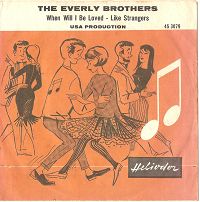
"When Will I Be Loved" is a popular song written by Phil Everly of the Everly Brothers, who had a US top-ten hit with it in 1960. Linda Ronstadt covered the song in 1975, and her version was an even bigger hit in the US, peaking at No. 2. Vince Gill also covered it in 1994 on the soundtrack of the film 8 Seconds.
"Share Your Love with Me" is a song written by Alfred Braggs and Deadric Malone. It was originally recorded by blues singer Bobby "Blue" Bland. Over the years, the song has been covered by various artists, most notably Aretha Franklin who won a Grammy Award for her 1969 rendition. Other artists who covered the song include The Band in 1973, Kenny Rogers in 1981, and most recently, Van Morrison in 2016.
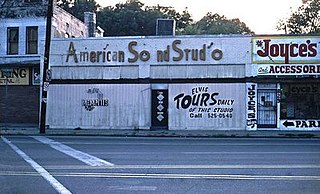
The American Sound Studio was a recording studio located in Memphis, Tennessee which operated from 1964 to 1972. Founded by Chips Moman, the studio at 827 Thomas Street came to be known as American North, and the studio at 2272 Deadrick Street came to be known as American East or the Annex.

"Do Right Woman, Do Right Man" is a song written by Chips Moman and Dan Penn, and made famous by Aretha Franklin. Her version was released on February 10, 1967. Rolling Stone listed it as number 476 in their list of the 500 Greatest Songs of All Time.
The Ovations were an American rhythm and blues vocal group who recorded in the 1960s and 1970s. Their biggest hit, a remake of Sam Cooke's "Having a Party", reached no.7 on the Billboard R&B chart in 1973.

The Sweet Inspirations is the self-titled debut album by American recording soul/gospel female group the Sweet Inspirations, released in 1967 by Atlantic Records. Led by Cissy Houston, the Sweet Inspirations were highly-in-demand female back-up singers featured on some of the most important pop and soul recordings of the 1960s and '70s. They toured and served as session background vocals on albums by various artists' including Elvis Presley, Aretha Franklin, Wilson Pickett and Dusty Springfield. This was their first album, recorded in 1967, in which it contains mostly covers of the hits of the day. The album peaked at number 12 on Billboard's Hot Soul Albums, and features the Top 20 hit "Sweet Inspiration" plus the R&B chart hits "Why " and "Let It Be Me".
